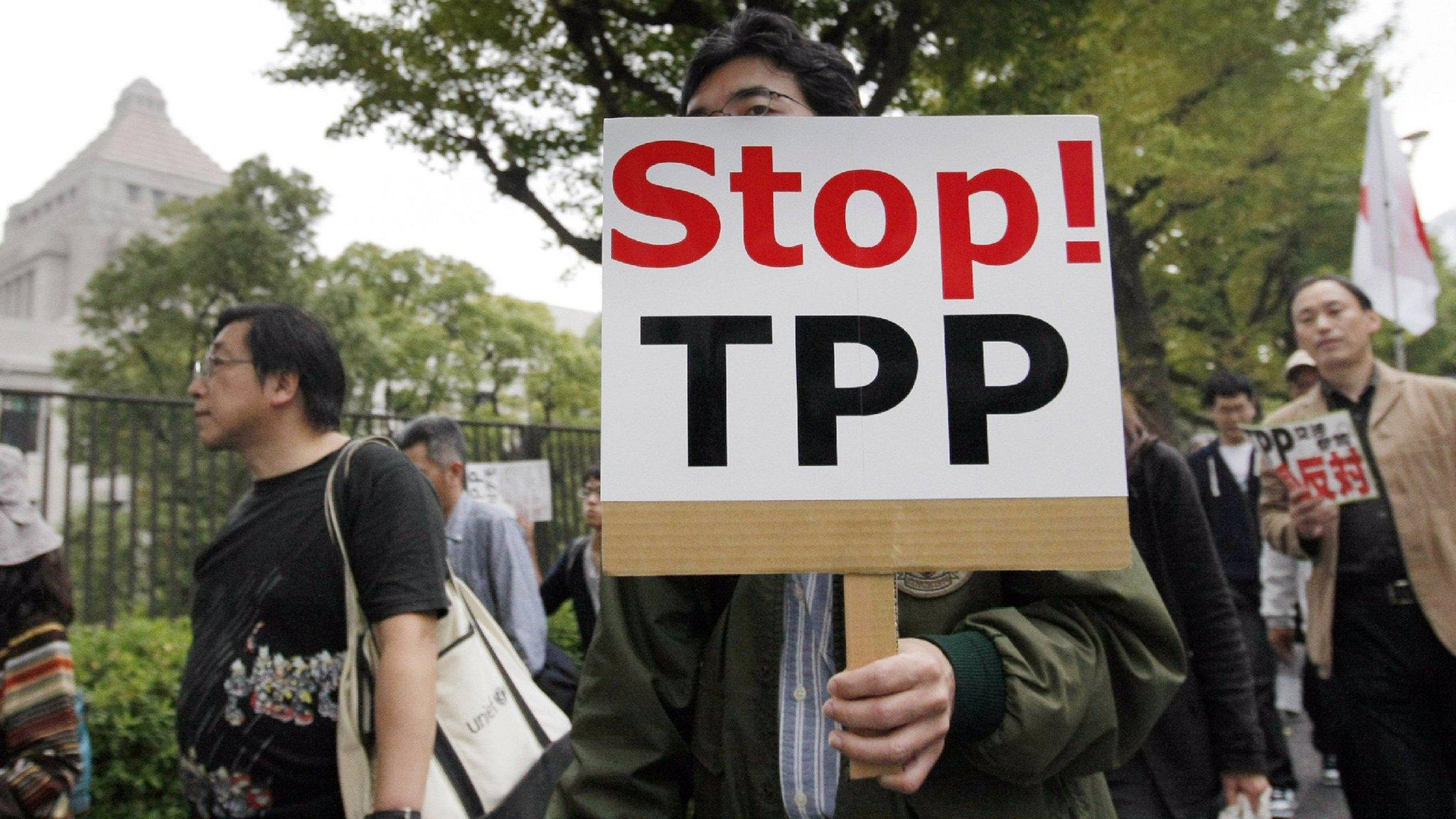Abe and Obama look to 'swift conclusion' of Trans-Pacific Partnership deal
- Published
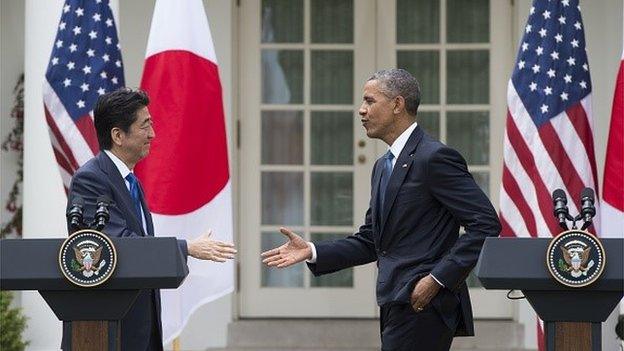
The Trans-Pacific Partnership does not include China
US President Barack Obama has said the US and Japan are working towards a "swift and successful conclusion" to the Trans-Pacific Partnership (TPP).
Mr Obama was speaking at a joint press conference with Japan's Prime Minister Shinzo Abe, who is in Washington on a state visit.
Earlier the two leaders agreed on new guidelines for defence co-operation.
The TPP is aimed at liberalising markets in 12 countries, and the US and Japan are among the biggest players.
It is poised to be the world's largest-ever free trade deal, and estimates suggest the proposed deal could cover up to 40% of global trade.
Other countries involved in the deal are Brunei, Malaysia, Vietnam, Singapore, Australia, New Zealand, Canada, Mexico, Chile and Peru.
China, which is not part of the TPP, sees it as an attempt to counter its economic might in the region and is working on a rival trade deal.
The deal has been in the making for about a decade. Both leaders have advocated for the partnership, arguing that freer trade will benefit their economies. But critics in their respective countries fear that jobs and certain industries will be made more vulnerable.
"I know that the politics around trade can be hard in both our countries," said Mr Obama in the press conference on Tuesday. "But I know that Prime Minister Abe, like me, is deeply committed to getting this done, and I'm confident we will."
Mr Obama is seeking Congress' guarantee to "fast-track" approval for the deal.
Air base relocation
Both countries also recently agreed on new defence guidelines which clarify the US's commitments to Japan's security.
Mr Obama said the US-Japan security treaty covers all territories under Tokyo's administration, including islands in the East China Sea which Beijing also claims.
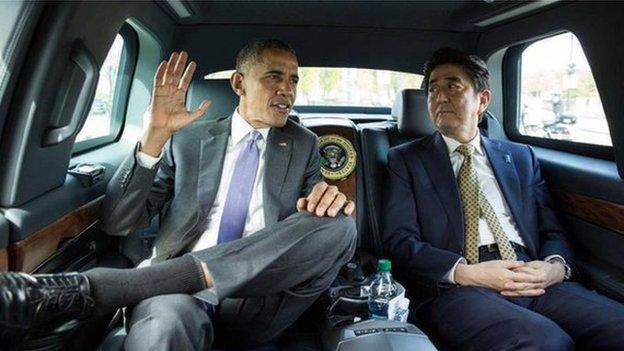
Mr Obama hosted a tour of Washington DC for Mr Abe on Monday
But he said: "We don't think that a strong US-Japan alliance should be seen as a provocation."
The new guidelines also build on Japan's resolution last year to reinterpret its pacifist constitution and take on a more assertive military role, allowing Japan to defend the US and other allies.
Mr Abe discussed those guidelines with Mr Obama on Tuesday, as well as the controversial relocation of the Futenma US air base in Okinawa.
The central government is currently in a stand-off with local government on plans to shift the Futenma air base from a highly-congested part of Okinawa to Nago, in the north of the island.
Residents fear damage to environment and associate US camps with accidents and crime.
Mr Abe said Japan and the US would work to ease the local residents' burden of hosting US troops.
- Published27 April 2015
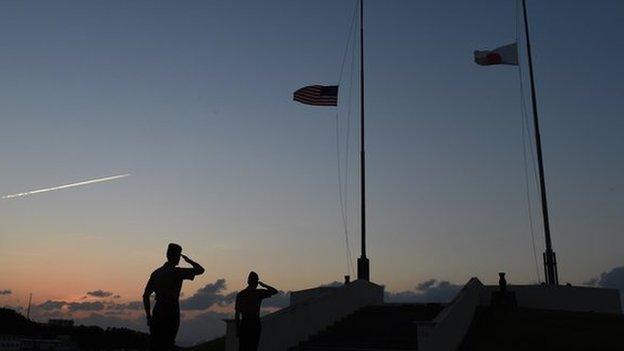
- Published14 March 2013
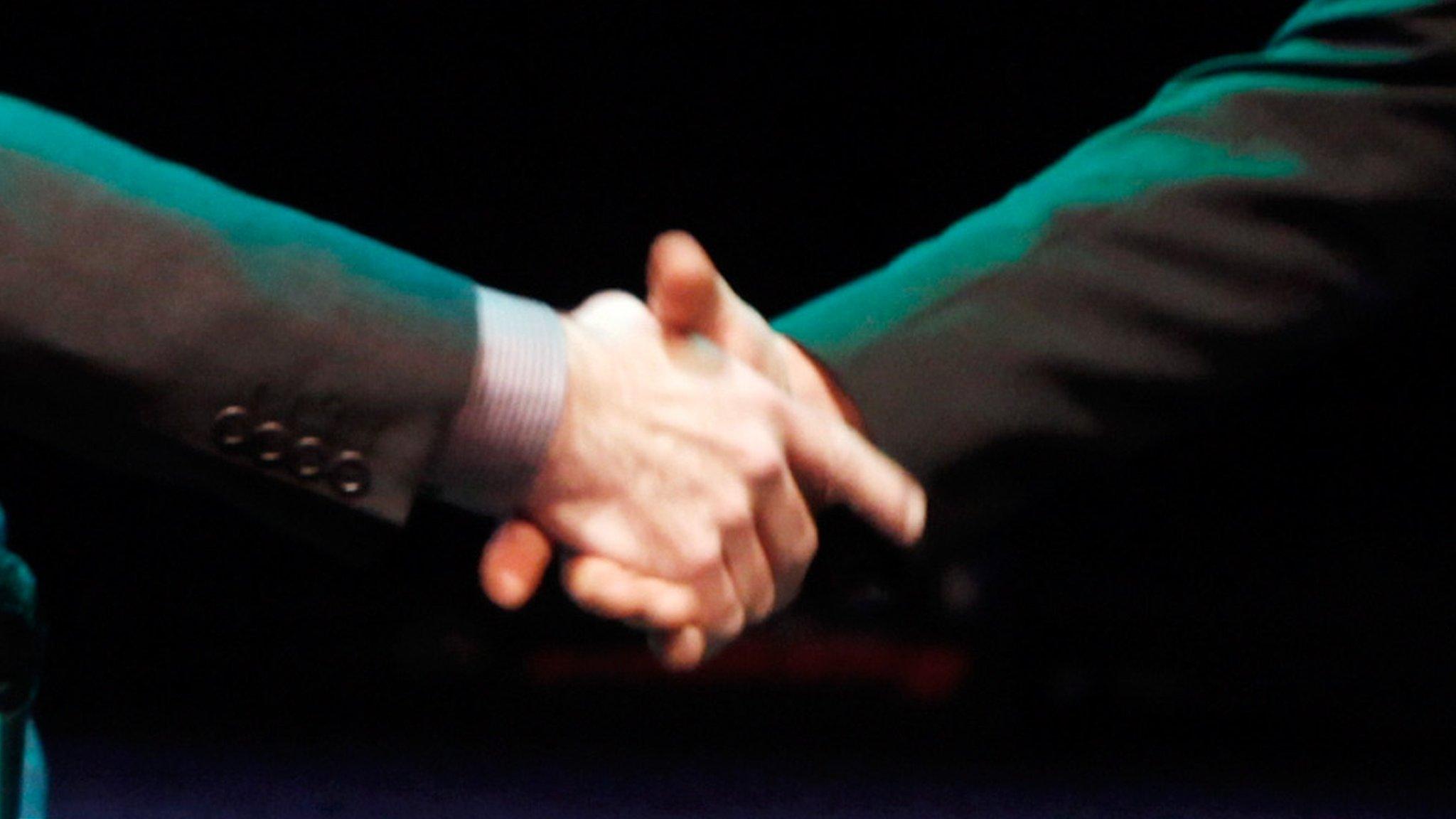
- Published22 April 2014
